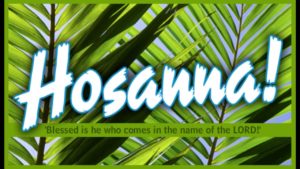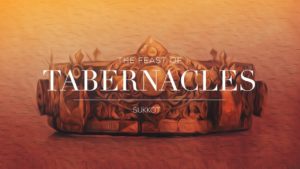Palm Sunday – a Triumphal Entry to Jerusalem
An unusual encounter happened one day while Jesus of Nazareth was working his way through villages and towns heading toward Jerusalem for the final time. Some Pharisees forewarned Jesus that Tetrarch Herod was seeking to have him killed.[1]
No fan of the Pharisees nor Herod Antipas who had John the Baptist beheaded, the response was blunt: “Go, tell that fox, ‘Behold, I cast out demons and perform cures today and tomorrow, and the third day I shall be perfected.’” [2]Jesus finished by quoting from Psalms 118:26.[3]
LK 13:35 “…I say to you, you shall not see Me until the time comes when you say, ‘Blessed is He who comes in the name of the LORD!’”
PS .118:26 “Blessed is he who comes in the name of the LORD! We have blessed you from the house of the LORD.” (NKJV)
≈
Lazarus had been raised from the dead in Bethany by Jesus of Nazareth who had then slipped away to Ephraim to escape the constant celebrity turmoil. After a short period of time, he returned to Bethany for a Saturday night dinner at the home of Simon the leper, presumably one of the many lepers previously healed by Jesus.
Martha was serving the meal, her sister Mary and brother Lazarus along with all 12 Disciples were in attendance, perhaps others, too.[4] Outside a crowd of onlookers gathered to see Jesus and Lazarus, the novelty man who had been raised from the dead after 4 days in a tomb.[5]
Sunday the next morning, Jesus sent Disciples Peter and John into Jerusalem a couple of miles away to fetch a donkey colt and find a place to observe the Passover.[6] The entire episode was a mysterious mission – finding a mother donkey with its young colt belonging to an unidentified person who would also provide a place to eat the Passover meal.[7]
Not knowing any specific details, the two Disciples had only clues.[8] As a sign, they were to look for a man carrying a jar of water and a tied-up mother donkey with its colt.
Instructed to untie the mother donkey and proceed to lead it away, they were to say to the man when he challenged them, “The Lord needs it.”[9] They were then to follow the man to a house and say, “The Teacher says, ‘My time is near. I will observe the Passover with my disciples at your house.’”[10]
Exactly as Jesus had predicted, it happened. Peter and John found the mother donkey with its colt; the person with the donkey asked what they were doing; and after responding as Jesus instructed, the man then led them to a house.
Showing them an upstairs room, they found it fully furnished and prepared for the Passover.[11] After seeing the room, the two Disciples took the donkeys to Jesus.[12]
Matthew and John Gospels point out that this event was a fulfillment of the Zachariah messiah prophecy that foretold the King of Israel would arrive riding on a donkey. Specifically, the foal colt of a donkey – at that age, it had never been ridden.[13]
Zech 9:9: “Rejoice greatly, O daughter Zion! Shout aloud, O daughter Jerusalem! Lo, your king comes to you; triumphant and victorious is he, humble and riding on a donkey, on a colt, the foal of a donkey.” (NRSV)
All four Gospel authors write about that day described as “triumphal” by the Gospels when Jesus rode into Jerusalem seated on a donkey colt. Many people, including ones who had seen Lazarus raised from the dead, began chanting, laying down their outer garments and placing palm branches in his path.
Seeing and hearing all the commotion, others asked, “Who is this?” Christianity refers to this final entry to Jerusalem as “Palm Sunday.”[14]
JN 12:12-13 “The next day a great multitude that had come to the feast, when they heard that Jesus was coming to Jerusalem, took branches of palm trees and went out to meet Him, and cried out: “Hosanna! ‘Blessed is He who comes in the name of the LORD!’ The King of Israel!”” (NKJV)

“Hosanna” is a shortened version of the Hebrew saying “Anna Adonai hoshi-‘ah-nna” from Psalms 118:25.[15] A customary cry of joyful celebration, “hosanna” traces to ancient Jewish times when a marching procession would wave branches of palm, myrtle and willow each day of the Sukkot festival (aka the Feast of Booths or the Feast of Tabernacles). [16]
“According to John xii. 13…which has the story preserved in its original form, the same cry was raised by the multitude on the occasion of Jesus’ arrival at Jerusalem. They “took branches of palm-trees, and went forth to meet him, and cried, Hosanna: Blessed is he that cometh in the name of the Lord” — that is, the verse following “Anna Adonai hoshi’ah-nna” in the Hallel psalm — and then called him “the King of Israel.” … The Psalm verses recited have been interpreted by the Rabbis also as referring to the advent of the Messiah…” – Jewish Encyclopedia [17]

Sukkot, usually falling in the month of September, begins five days after Yom Kippur, the Day of Atonement. It is one of the three annual pilgrim festivals required by the Law.[18]
Often referred to as the “season of our Rejoicing,” the Sukkot holiday serves a dual purpose. Sukkot celebrates both the harvest as well as the Hebrews emerging from the 40 years of wondering in the Sinai desert wilderness where they had lived in temporary shelters called “tabernacles.”
Seventh and final day of the Sukkot festival is called “Hoshanna Rabbah” meaning “Great Salvation.” The Jewish nation is judged by God that day to determine whether or not they would be worthy of the seasonal rains.[19]
Psalms 118 is regarded in Judaism as the concept of salvation pointing to the arrival of the Messiah.[20] Jewish sage Rabbi Rashi quoted from Psalms 118:22 in his commentary of the Micah 5:2(1) Bethlehem prophecy.
Rashi’s commentary says, “the stone the builders had rejected became a cornerstone” refers to “the Messiah, son of David.”[21] The Rabbi’s commentary on the actual Psalms 118:22 verse expounded that it meant: “A people that was humble among the peoples.”[22]
Were Zechariah’s Messiah prophecy and the Psalms 118 prediction of his triumphal final entry into Jerusalem fulfilled by Jesus on Palm Sunday?
Updated January 18, 2025.
This work is licensed under a Creative Commons Attribution-NonCommercial-NoDerivatives 4.0 International License.
REFERENCES:
[1] Luke 13:31.
[2] Luke 13:32. NJKV.
[3] Luke 13:35.
[4] Matthew 26:6; John 11:43-44, 54; 12:1-2.
[5] John 12:9.
[6] Luke 22:7-13. CR Matthew 26:17-19; Mark 14:12-16; Luke 19:28-36. John 11:18; 12:12.
[7] Matthew 26:17-19; Mark 14:12-16; Luke 19:28-36. John 11:18; 12:12.
[8] Mark 14:13. Luke 19:30-34.
[9] Matthew 21:3; Luke 19:31-35.
[10] Mark 14:14.
[11] Mark 14:15.
[12] Matthew 21:7; Luke 19:35; John 12:14.
[13] Matthew 21:5; John 12:15.
[14] Matthew 21:2-11; Mark 11:1-11; Luke 19:28-40; John 12:12-16.
[15] “Hosanna.” Jewish Encyclopedia. 2011. <http://www.jewishencyclopedia.com/articles/7893-hosanna> Psalms 118:25. BibleHub. Lexicon. 2021.<https://biblehub.com/lexicon/psalms/118-25.htm> “3467. yasha.” BibleHub. 2021. <https://biblehub.com/hebrew/3467.htm> “Hosanna.” YouTube. photo. 2022. <https://i.ytimg.com/vi/pRpF_lQiroE/maxresdefault.jpg>
[16] “What is Sukkot.” Chabad.org. 2014. <http://www.chabad.org/holidays/JewishNewYear/template_cdo/aid/4784/jewish/What-is-Sukkot.htm> Rich, Tracey R. “Sukkot.” JewFAQ.org. n.d. <http://www.jewfaq.org/holiday5.htm>
[17] “Hosanna.” Jewish Encyclopedia. 2021. <https://jewishencyclopedia.com/articles/7893-hosanna>
[18] Deuteronomy 16:9-17. “Tabernacle, Feast of | Sukkot.” YouTube. photo. 2022. <https://i.ytimg.com/vi/KxFzn-ivQv0/maxresdefault.jpg>
[19] Lawrence, Natan. HoshanaRabbah.org. “Origin of “Hoshana Rabbash.”” 11/15/2019. <https://hoshanarabbah.org/blog/2019/11/15/origination-of-hoshana-rabbah> Rich. “Sukkot.”
[20] “Salvation.” Jewish Encyclopedia. 2011. <http://www.jewishencyclopedia.com/articles/13051-salvation> “Salvation.” Jewish Encyclopedia. 2011. Psalms 118:15. BibleHub. Lexicon. 2021. <https://biblehub.com/lexicon/psalms/118-15.htm> “3444. yeshuah.” BibleHub. 2021. <https://biblehub.com/hebrew/3444.htm> Psalms 118:15. Complete Jewish Bible with Rashi Commentary. 2021. <https://www.chabad.org/library/bible_cdo/aid/16339/showrashi/true> Psalms 118:25. BibleHub. Interlinear. 2021. <https://biblehub.com/interlinear/psalms/118-25.htm> “3467. yasha.” BibleHub. 2021. <https://biblehub.com/hebrew/3467.htm>
[21] The Complete Jewish Bible with Rashi’s Commentary.
[22] Micah 5. The Complete Jewish Bible with Rashi’s Commentary. <https://www.chabad.org/library/bible_cdo/aid/16191/showrashi/true> Psalms 118. The Complete Jewish Bible with Rashi’s Commentary.
